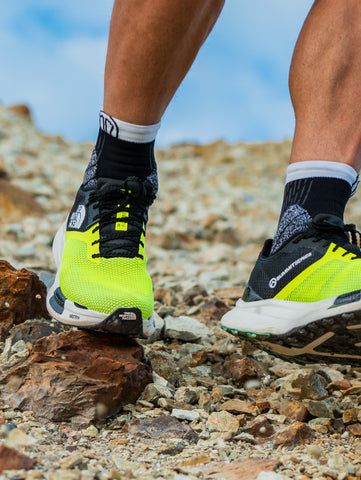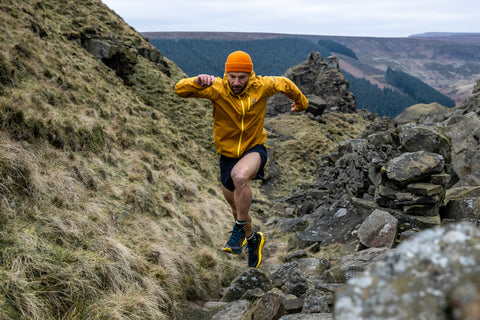Not the sexiest topic in the world! We know...
But foot maceration in Ultra Runners is fairly common place. We learned from our experience at Ultra Trail Snowdonia by UTMB that this was one of the most common reasons for DNF's, especially in the 100M and 100K events where the athletes were trudging through saturated bogs.

Caring for your feet during an ultra trail run is crucial to ensure you stay comfortable, safe, and reduce the risk of problems like foot maceration giving the best chance of finishing your race.
Maceration of the feet can be a problem during ultra events due to prolonged moisture exposure. Here are some tips to help prevent maceration and keep your feet in good condition:
Moisture management: Start by choosing moisture-wicking socks made of

technical materials that draw sweat away from your skin. Avoid cotton socks as they absorb & retain moisture. Consider using a moisture-absorbing powder or antiperspirant on your feet before wearing socks.
Proper shoe selection: Make sure you have well-fitting shoes that provide enough room for your toes to move comfortably. Shoes that are too tight can increase friction and moisture build-up. Look for shoes specifically designed for long-distance running or trail running that offer good breathability and drainage features.
Foot care and hygiene: Keep your feet clean and dry during the race whenever possible. Some ultra races provide foot care stations where you can clean and dry your feet. If available, take advantage of these stations to freshen up your feet. If not, consider carrying a small towel to wipe off excess moisture.

Regular foot inspections: Take the time to check your feet periodically during the race. Look for any signs of maceration, blisters, or hot spots. Address any issues early by applying appropriate blister treatments or changing socks/shoes if necessary.
Footwear changes: During longer ultra events, you may need to change your socks and shoes at aid stations or checkpoints. This can help remove excess moisture and prevent maceration. Pack extra socks and consider using a moisture-wicking insole or changing the insole altogether if it becomes saturated.
Foot elevation: Whenever you have an opportunity to rest, elevate your feet to reduce swelling and aid in drainage. Prop your feet up on a backpack or against a tree to promote blood circulation and reduce moisture accumulation.
Train and condition your feet: Gradually build up your mileage and training to help toughen your feet and reduce the likelihood of maceration. Regularly practice running or walking in wet conditions to accustom your feet to moisture and develop resilience.

Remember, prevention is key. If you notice any signs of maceration or discomfort during an ultra event, address them promptly to prevent further complications. If the condition worsens or you experience severe pain, it's advisable to seek medical attention from a healthcare professional.

